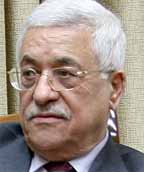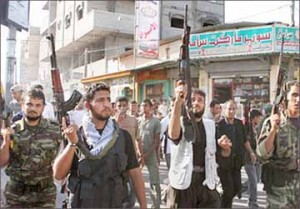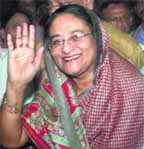Charles Tannock is UK Conser-vative Foreign Affairs Spokes-man in the European Parliament and led the EU parliamentary delegation of election observers to the recent Bangladesh elections.
This article was received from Project Syndicate, an international not-for-profit association of newspapers dedicated to hosting a global debate on the key issues shaping our world.
by Charles Tannock
DAKKA – As fears about the Islamization of politics in the Muslim world grow, Bangladesh, with the world’s fourth-largest Muslim population (126 million), has moved dramatically in the opposite direction. Bangladesh is usually heard about only when cyclones and tsunamis ravage its low coastline, but the country’s relatively anonymous international stature belies its strategic importance. Its secular politicians’ ability to defeat the country’s Islamists decisively in the recent parliamentary election may, indeed, have revived the viability of “Muslim democracy” around the world.

The recent landslide victory (with a huge turnout) for the Awami League in Bangladesh’s first election in seven years, after two years of a military-backed caretaker government, has moved the country to the forefront of the battle between secular democrats and Islamists that is now underway across South Asia. The election was a credit to the country’s democratic yearnings – and I say that as the chairman of the European Parliament’s short-term election observation mission to Bangladesh.
The new electoral register was more robust than in many Western countries, with a photo ID picture alongside each elector. The violence that had been widespread in previous Bangladeshi elections was entirely absent, with the security services’ professionalism in policing the elections – and the army’s willingness to return voluntarily to its barracks – playing a key role.
In Prime Minister Sheikh Hasina, Bangladesh now has a charismatic leader whose massive electoral mandate augurs well for creating the type of strong, secular government that the country needs. She returned to Bangladesh from exile, which the army had imposed on her. After her return she still had to endure imprisonment and trumped-up murder charges.
Hasina’s enormous popularity as a former prime minister, and her status as one of only two surviving daughters of Bangladesh’s founder, Sheikh Mujib Rahman, always ensured that she would be a leading contender in the election. Her overwhelming triumph has vindicated her belief that ordinary Bangladeshis want a secular and stable future for their country – one that, in contrast to Pakistan, is characterized by warm relations with their giant neighbour, India.

The comprehensive defeat of the Islamist parties that sought to take Bangladesh away from its democratic and secular roots, and which had sought in 1971 to impose Urdu as a national language and suppress Bengali language and culture, is the real story of the election. The vote demonstrated that Bangladesh’s 153 million people have little appetite for bringing Islamism into politics. Bangladesh needs only to look west to India and Pakistan to see the threat posed by Islamist terrorism.
But if Hasina is to succeed in continuing to blunt Islamism, she must address the fundamental problems that have destabilized Bangladeshi society for decades. Chief among these is the poverty endured by the majority of her country’s population.
To some extent, it is surprising that the Islamist parties did not do better, considering their success elsewhere in mobilizing the most marginalized and vulnerable in society.
If the Awami League is unable to address the country’s systematic poverty and social inequality, Islamism may well yet succeed in rallying the impoverished to its banner. The Jamaat-e-Islami Party, indeed, told me during my stay that they had a 30-year agenda to introduce Sharia law into Bangladesh.

The example of Hamas and Hezbollah provide a salutary reminder of the challenges faced by the new government in Bangladesh. Although these terrorist groups are better known internationally for atrocities against Israel, they have established strong political support by providing organized social services such as schools and clinics for poor people.
Hamas and Hezbollah prospered in this way because the governing authorities were either unable or unwilling to address grassroots poverty. In the case of Hamas, this displacement was due largely to the massive corruption of the Palestinian Authority under Yassir Arafat, whose cronies pocketed billions of dollars intended to alleviate poverty and suffering in the Gaza Strip.
Given that endemic corruption in Bangladesh is perhaps the primary obstacle to providing essential services for poor people, it is essential that Hasina adopt a tough approach to corruption from the outset. Corruption is also a potential trigger for intervention by the military, a recurring feature of Bangladesh’s history that has consistently impeded the country’s development.
Beyond fighting corruption, Hasina must also ban all foreign donations to political parties, in particular the “Wahhabi gold” that Saudi Arabia and the Gulf states use to fund Islamist parties.
The challenges facing the Awami League are many and varied, but it is not without resources. Bangladesh is in a better position to weather the global financial storm than most Asian countries, because its banks are not over-exposed and its garment industry focuses on the lower end of the market, which, so far, appears to be holding up. But chief among Bangladesh’s opportunities is the chance to show the world that a Muslim-majority country can freely embrace liberal democracy and make it work by confining religion to the private sphere.
With its constitutional majority, the government should ensure this outcome by restoring the 1972 Constitution, which established Bangladesh as a secular democratic state. Bangladesh is a country rich with human potential, but that potential can only be realized by making poor people’s needs – which Islamists around the world have previously made their own political territory – the new government’s top priority.
Copyright: Project Syndicate, 2009.
www.project-syndicate.org










